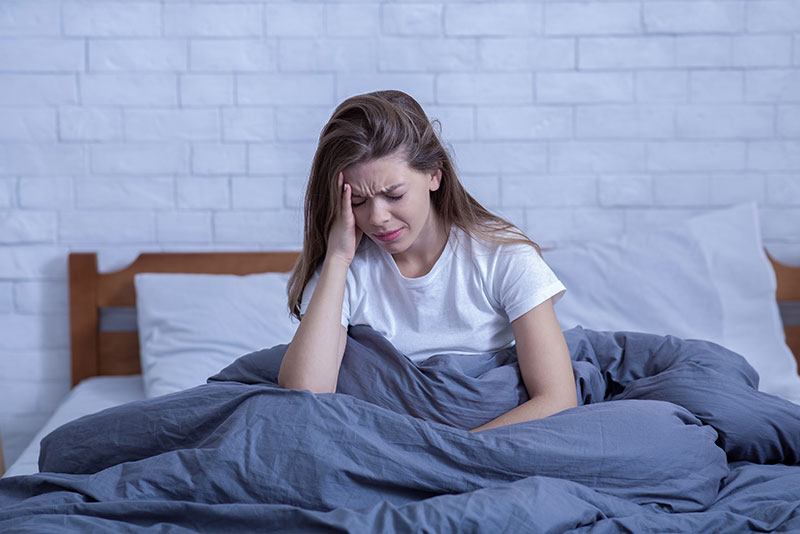Sleeping Problems

Insomnia is a common problem for many adults of all ages. Different studies have found that the prevalence of insomnia in adults is approximately 10-30 percent of the people. Females suffer from this affliction more than males. Sleep disorders are especially prevalent for individuals who have been injured, continue to be in pain or having been traumatized.
One way to understand insomnia is the following. There can be difficulty initially going to sleep. A person may awaken during the night. This could be due to pain, disturbing dreams, waking up anxious and even simply waking up and not knowing why. Some people can go right back to sleep after awakening, but others can be up for hours. There is also what is known as early morning awakening. This refers to waking up hours before you want to. You can be exhausted and yet not go back to sleep. Some people have little idea of how much they have slept, but know they feel extremely tired. There are individuals who worry about having a poor night sleep before it is even time to go to bed. This usually exacerbates the problem. Sleeping problems can be frustrating, frightening and perplexing. I often have heard that one cannot understand why they do not sleep well after being tired most of the day. It can be a symptom of psychological problems and one that leads to the development or worsening of psychological symptoms.
I often have heard from my patients that they cannot understand why they do not sleep well after being tired most of the day. Then there are the occasional nights of sleeping well and yet feeling so tired.
There are different stages of sleep. There is rapid eye movement, known as REM. This is the stage of sleep when an individual dreams. Everyone dreams even if they do not remember them during the night or in the morning. There are different stages. The first stage is associated with relaxation, the start and slowing of less temperature and the relaxation of muscles and slower breathing and heart rate. It is not unusual for an individual to wake up during the first stage of sleep. This is very disturbing and annoying because an individual may feel somewhat awake, becoming worried about how much sleep they will have. If this does not happen, most people quickly move into stage two and sleep is usually uninterrupted. Brainwaves slow to a new pattern and there is no eye movement. It is thought that an individual typically spends about 50 percent of their sleep in their second cycle of non-REM sleep. Then there is the state known as deep sleep. It is very important for individuals to go into this stage for sleep to be restorative. When it comes to pain, consider a lack of sleep leading muscles to getting fatigued which only puts more strain on spinal injuries. Insomnia can make pain worse and pain interferes with a good night sleep. This takes a psychological toll on a person and causes different problems and symptoms.
Stress, whether induced by pain or something else is contributed to poor sleep. It is very important for psychotherapy to reduce the stressors a person is having in their life. This is associated with changes in the way one thinks, feels and acts.
There is a behavioral sleep program that was developed at Duke University in the 1980s. A subsequent research project at Harvard validated the effectiveness of this method. I have utilized it since 1985 and have added additional features to the program to make it more effective.
Sleep is one of the few things that a young baby or child does not need to learn. It is natural, and yet a problem for so many adults. It is very important to be able to get one’s self in a very relaxed state. Biofeedback is usually included in the treatment an individual receives for insomnia. Biofeedback is simply feedback about biological processes. It is used all the time. For example, your child may be sick and you are wondering if they have a fever. You take out the thermometer and find out that the temperature is 102 and now obviously sick. Not only did you get a measure of a biological function (bodily temperature), but also received feedback of knowing exactly what the temperature was (feedback). Biofeedback helps to develop the capacity to induce physiological relaxation and lessen tension and stress. This leads to decreased anxiety, worrying and frustration. It is very reassuring to discover that the lack of sleep is not as uncontrollable as it presently has become.